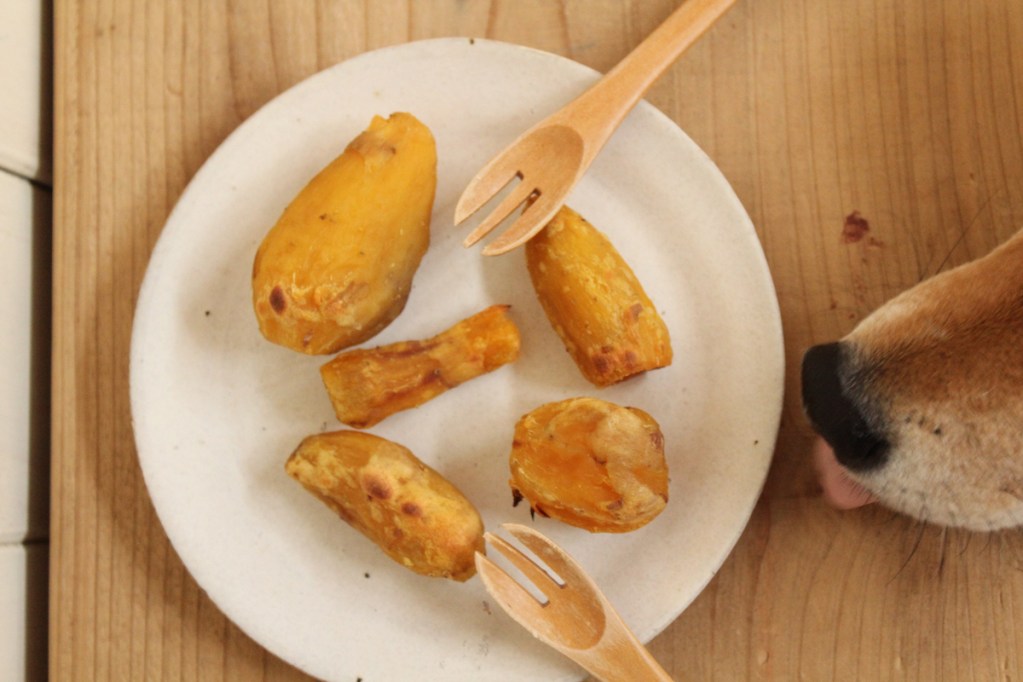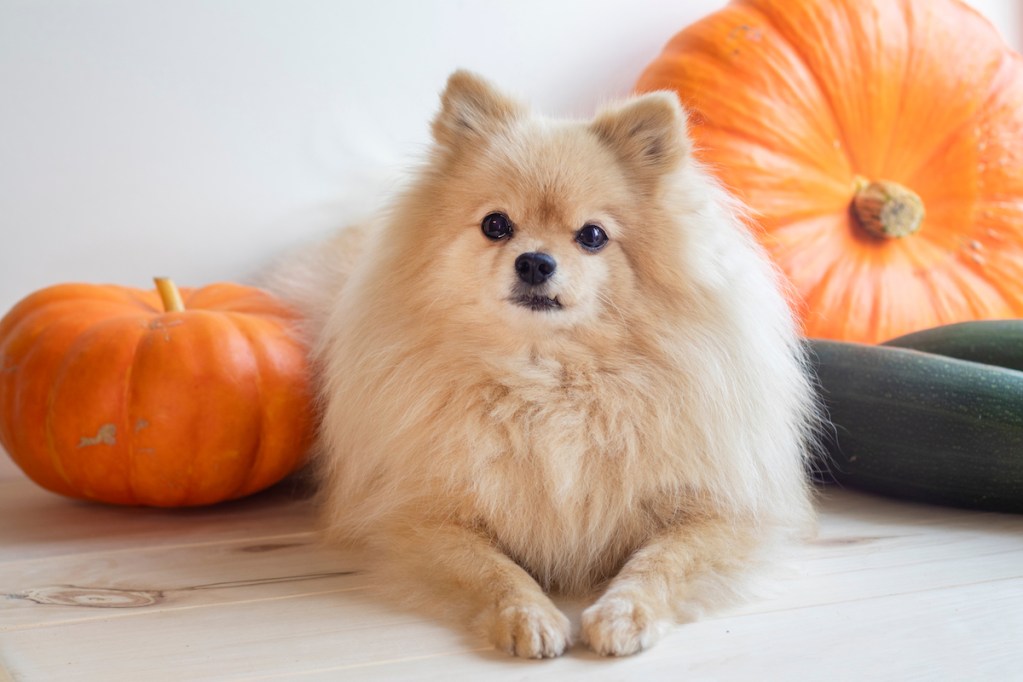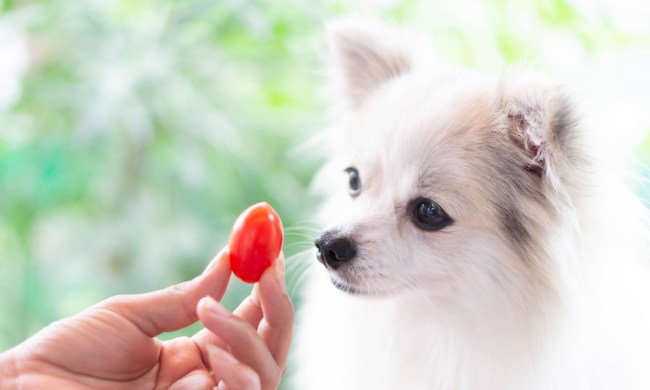Every dog owner has slipped their furry friend a snack or two from off the dinner plate. But just as we have to be careful with what we eat, our pets need us to watch what goes into their mouths, too. There are lots of healthy diets for pups of all different varieties, but every animal needs the correct balance of calories and nutrition.
When it comes to discretionary foods, like sweet potatoes, your goal should be moderation. Keep in mind, your pup might actually eat some of this in her regular food, so you’ll need to carefully consider all aspects of her meal plan before introducing this element. There can be some risks, but with enough research, your doggie will enjoy a sweet potato snack now and then. Keep reading to find out if your dog can eat sweet potatoes and if your dog can eat raw sweet potatoes.

Can dogs eat sweet potatoes?
The short answer is yes, in small quantities, — that should be alright. As mentioned, lots of pet food contains some sweet potatoes along with other grains and veggies. On top of the kibble, you can feed your dog a yam snack from time to time. Because they are low in fat but high in vitamins, sweet potatoes can serve as a healthy addition to standard food for both people and pets. But you have to make sure you’re preparing them properly.
One note we want to make sure to share, the FDA is investigating a link between dogs and cats eating a large number of potatoes (especially in grain-free dog food) and a heart condition called canine dilated cardiomyopathy. This can be fatal, so it’s important to speak with your vet about whether it might be a concern for your particular pet.

How can dogs eat sweet potatoes?
Here’s the most important part: You should always peel and cook this treat before giving it to your pet, as you shouldn’t give your dog raw sweet potatoes. Raw sweet potatoes can give your pooch an unhappy tummy. You also want to make sure they are soft enough for Fido to chew and swallow easily. Remember, you can’t add anything to the root either. While you might enjoy your Thanksgiving sweet potato casserole slathered in butter, that’s too much fat for your beast.
You can bake them or boil them as long as you don’t add seasonings or oil. Try out both and discover what your pooch likes best. Remember, you should also slice up the potatoes into small bite-size pieces for her so she doesn’t accidentally inhale a big chunk and choke. The smaller the better to start.

How often can dogs eat sweet potatoes?
Talk to your vet before incorporating sweet potatoes or really any snacks into your dog’s diet. You don’t want to go overboard and have her get full on this veggie, because it’s essential that she gets enough animal protein. So while you might try to stuff yourself with salad, the goal here should be to make most of her meals from meat, like from her kibble or another doggie-doctor-approved fare.
The exact proportions depend on your pup’s age, breed, and size. Don’t start your Yorkie on a potato per day! Assuming your animal doc approves, try giving one sweet potato in a week and seeing how she does with it. Start with just a little, like a small bite, and then increase the amount slowly. If your fur baby gets too full to eat normally or gets diarrhea or other digestive issues, stop immediately and talk to your vet about 6the next steps. She may need bland food for a few days to recover before switching back to basic kibble.
As with all snacks, think about the 10% rule that states your pet’s diet should consist of about 90% staples and the rest treats. Overdoing it on any fruits and veggies may cause digestive issues and eventually can lead to other illnesses. In fact, too much vitamin A can actually harm your pup (and you as well). As we mentioned, moderation will have to be your mantra since you don’t want to overdo it on this plant. If you decide to switch it out on a daily or weekly basis, try carrots, broccoli, and cucumbers as well. That way, she never has too much of one good thing and won’t get bored with her special nibbles.



